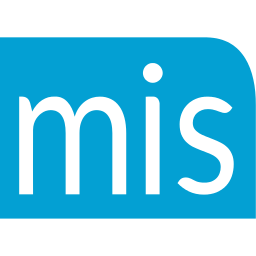
Before you get on your high horse and tell me you wouldn’t be caught dead using a script, consider:
If I were to record your prospecting and demo calls for a week, and then transcribe what you say, what would I get?
Your script.
You see, even if you think you would never use a script, the truth is, you already are!
The problem is that what you are so used to saying, your “script,” in many cases isn’t the best practice. It’s not thought out, carefully crafted, and usually isn’t the most effective response.
Most of the time, it’s the accumulation of bad habits, ad-libbing that worked two years ago (but isn’t effective now), and, frankly, could use a major refresh.
Once you take the time to write an effective script (or hire a professional like me to write it for you or your team), then you can deliver the absolute best messaging and the most effective sales techniques THAT WORK.
Here are 5 reasons following a well written script will make your sales team better (and make your company a lot more money!):
#1: You’ll sound more professional. The best way to eliminate the “uhs” and “ums” is to follow—and then memorize—an effective script.
If you hate the sound of your own voice (when you listen to your recordings), then script out what you’re going to say, and concentrate on the delivery. Your prospects will trust you more, and you’ll appear more professional.
And prospects like that!
#2: Handling objections will become easier.
If you’re frustrated when a prospect tells you “they aren’t interested,” or when a demo ends with “I’ll think about it,” and you don’t know what to say, that frustration will end when you script out effective rebuttals to these common selling situations.
And that leads to:
#3: Following a script makes you more confident!
Top producers aren’t afraid of making calls, and they aren’t thrown off course when they get an objection. Why?
Because they expect them and know how to handle them. Scripting out your response in advance will not only help you deal with—and overcome—objections, it will lead to you becoming more confident.
And how nice will that be?
#4: Using a script will stop you from talking…and talking…and pitching…and pitching…
Sales reps LOVE to talk. And talk. And talk some more. Problem is: when your mouth is open, your ears are closed. You learn nothing when you keep talking, and because your prospects have all the answers, this is deadly for your success.
By inserting tie-downs, and trial closes in your script, you’ll actually have to stop and engage your buyer! And that’s when you learn what it’s going to take to close them. If you insist on ad-libbing, however, you’ll miss all this—and many times, miss making the sale.
#5: Using a script will stop you from talking past the close.
This is the number one problem with sales reps: Instead of confirming or asking for the order, they just keep talking…and talking themselves out of a sale.
If you don’t believe me, just listen to a couple of your last closing attempts.
See what I mean?
Bottom line: Scripts will make you a better, more confident, more successful sales professional.
If you’d like a book of over 500 fresh, proven, and effective scripts, then click here.
The sooner you stop ad-libbing, and start following a better practice approach, the sooner you’ll reap the benefits above…
Need More Proven Responses to the Selling Situations You Face Every Day?
ON DEMAND SALES TRAINING THAT GETS RESULTS!
If your team is struggling with call reluctance and is tired of the endless rejection they face, then get instant access to our On Demand training today. We provide the exact talk tracks, templates, and proven tools your team will be motivated to apply, all structured around an award winning comprehensive inside sales approach that gives your team the confidence to succeed in every selling situation they face today.
Unlimited License: One to 100 reps can attend for one low price!
Perfect for reps dealing with the following issues:
- Reps struggling with call reluctance
- Getting screened out by the gatekeeper
- Overcoming blow off objections like, “Just email me something”
- Identifying decision makers
- Qualifying prospects
- Setting call back appointments that stick
- Giving successful presentations and dealing with objections
- Staying motivated
